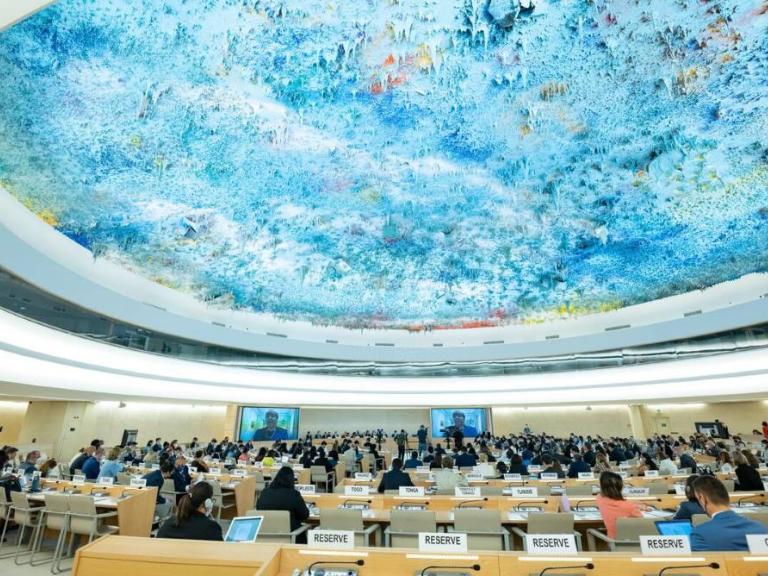-
Last updated on

Meeting of the IUS coordinator team and representatives of VLIR-UOS in Cuba. At the centre (white blouse) stands Dra. Diana Sedal Yanes, the rector of the Universidad de Oriente. © VLIR-UOS
Long-term collaboration by Flemish universities with a university from a poorer country is a real formula for success. As a result, the Cuban Universidad de Oriente was among those that grew into a high-performing institution that was also able to provide assistance during the corona pandemic.

VLIR-UOS organises – as commissioned by the Belgian Development Cooperation – the development cooperation of the 5 Flemish universities. One of the most successful programmes is the 'Institutional University Cooperation' (IUS). This is a long-term collaboration by the 5 Flemish universities and colleges with one university from the South. Objective: to strengthen this university so that it can better assume its role as an active player in society.
In addition to a number of academic research topics, IUS always includes an important cross-cutting component. And that revolves around strengthening the institution as a whole. Consider gender policy, general management, finance, international relations and curriculum development, in addition to internal (ICT, library, etc.) and external (communications, etc.) services.
The French-speaking universities - through ARES - also have a very similar programme.
12 years of collaboration
The fact that IUS has turned out to be such a success formula has a great deal to do with the intense, long-term collaboration. The Flemish research groups that can best meet the needs of the potential partner institution are carefully examined in an in-depth selection procedure. Following selection, a collaboration of typically two times five years will begin, followed by two years of phasing out. So a total of over 12 years. This allows for deep collaboration and sustainable results.
Thanks to the cross-cutting component, the university will also improve as a whole. Moreover, IUS addresses specific needs of that institution and contributes to the policy priorities of the poorer country in question. The numerous doctorates, postdocs and masters also have a lasting impact.
Pancarte of the data centre. © VLIR-UOS
Universidad de Oriente
A great example of a successful IUS is the collaboration with the Cuban Universidad de Oriente (UO) since 2013. This is focusing on public health, food safety, sustainable development, renewable energy, organic products and cultural heritage.
But digitalisation and boosting ICT capacity were also crucial to its success. Meanwhile, the UO has Internet and Wi-Fi connections on all 3 campuses. It also created a data centre and invested massively in computers.
The results are also flowing into society. For example, a number of 'computer youth clubs' – freely accessible to children and young people – were equipped with a total of 120 computers for 400,000 people to use. IT specialists from UO installed the necessary hardware and software and continue to handle the maintenance.
An app for effective health campaigns
In collaboration with the Vrije Universiteit Brussel (VUB), UO developed the app WisePocket. This app allows for smoother interaction with the public and can also make use of games. As a result, health campaigns for the general public can be made far more effective.
Moreover, the app can be used offline – highly convenient in a country where the Internet is not always reliable. The Ministry of Public Health, physicians, healthcare providers and citizens alike can use the app as a platform. As recently as 2018, WisePocket received the D4D prize from the Belgian Development Cooperation.
Coronavirus pandemic
As it happens, WisePocket already proved its worth during the coronavirus pandemic. The app was not only able to keep the public informed, but also to collect data from recovered patients for an epidemiological study.
The IUS with UO was also able to provide assistance in other ways during the pandemic. For example, students and young researchers were trained to carry out mass PCR tests – crucial for early detection of COVID-19. Oyster mushrooms were also grown to support the immune systems of recovering patients, doctors and nurses. In addition, UO contributed to the development of Cuban COVID-19 vaccines.
IUS allows the universities involved from poorer countries to grow into full-fledged players that advance their societies. And at the same time, it creates strong ties with the Flemish universities and colleges – a collaboration that ultimately benefits us all.
A great contribution to SDG4 (high-quality education), including SDG4.b (more scholarships for higher education in developing countries) and SDG4.3 (equal access for women and men to education). Besides, of course, the SDGs associated with the separate research components, such as SDG3 (health).
More on People

Belgium plays its part in ensuring respect for human rights worldwide
On 1 January 2023, Belgium will become a member of the UN Human Rights Council for 3 years. But what exactly does the Human Righ...

Belgium wants a world without the death penalty
Belgium aims to achieve a world where there is no death penalty, both in times of war and peace, because the death penalty is a ...

Egmont Institute: 75 years of cross-fertilisation between research and policy
For 75 years, the Egmont Institute has supported Belgian foreign policy as an independent think tank and conference organiser. A...
